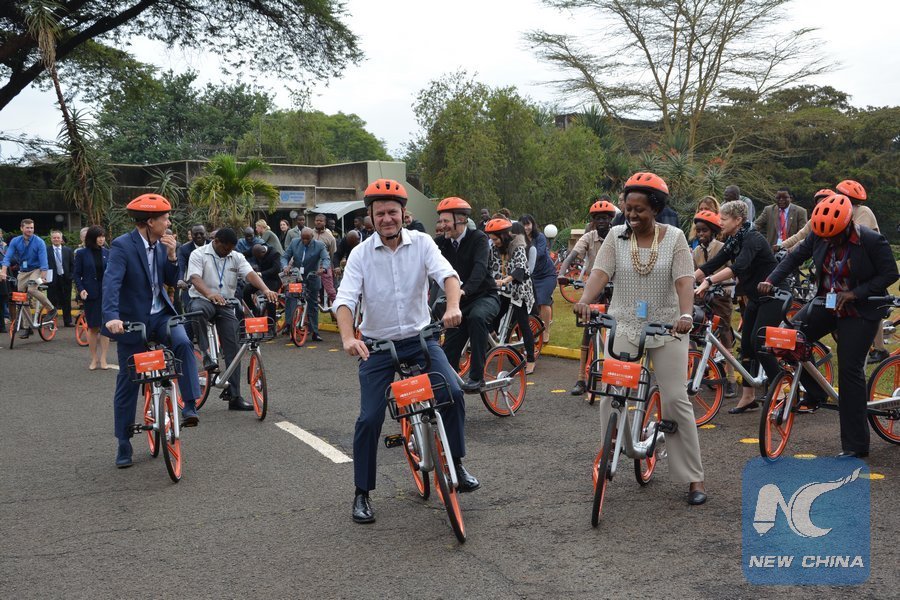
Executive Director of UN Environment (UNEP) Erik Solheim (C) and staff members ride on state-of-the-art bikes donated by China's Mobike at the United Nations Offices in Nairobi, Kenya on March 5, 2018. The United Nations Office at Nairobi on Monday launched a bicycle sharing transport scheme for staff and visitors as part of broader efforts to advance the green agenda. (Xinhua/Jin Zheng)
NAIROBI, March 18 (Xinhua) -- African countries should reorganize urban design to promote cycling and walking as efforts to decongest the continent's cities gather steam, says a UN official.
Carly Koinange, Share the Road Global Program Lead at UN Environment (UNEP), said the solution to traffic gridlock and air pollution in African cities lies in greater adoption of cycling.
"We need a bold vision and strong leadership to promote cycling in African cities. Combined with cleaner fuels, cycling will help reduce traffic gridlock and air pollution in our major cities," Koinange said.
She spoke at a side event on the future of walking and cycling held during the ongoing Africa Clean Mobility Week in Nairobi.
Delegates attending the five-day event agreed that investments in cycling paths, sensitization and policy incentives are key to promoting non-motorized and cleaner urban mobility.
Koinange noted that Africa was ripe for a cycling revolution thanks to an emerging consensus on the need to reduce traffic congestion that has negative environmental and health implications.
"If we can afford to roll out mass rapid transit buses, there is no reason why we should not invest in infrastructure to support cycling and walking in cities," said Koinange.
She urged African governments to embed cycling in new urban transport policies. Koinange noted that a bike sharing model promoted by UNEP and Chinese firm, Mobike could offer durable solution to the endemic traffic congestion crisis in Africa's rapidly growing cities.
"Public bike sharing schemes that are already active in 1,400 cities globally could pave way for efficient and cleaner urban mobility in Africa," Koinange said.
Winnie Mitullah, director of the University of Nairobi's Institute for Development Studies (IDS), stressed that policy incentives combined with financing and public awareness are key to promoting cycling in Africa's metropolis.
"The future of walking and cycling in our cities looks bright given the realization among urban planners and ordinary citizens that it is the only way to reduce emissions that are harmful to the environment and human health," Mitullah said.

